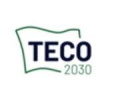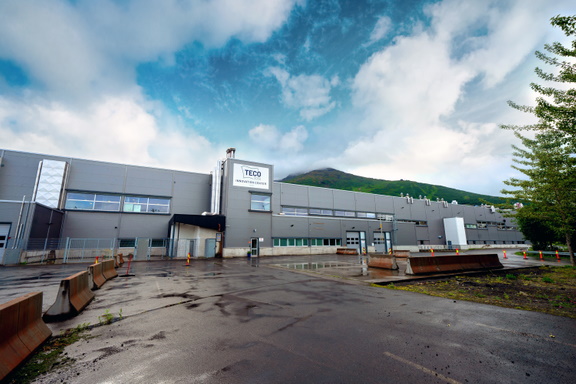

TECO 2030 has been granted up to NOK 5.4 million in indirect government support for developing its first semi-automated production line for hydrogen fuel cells at its new fuel cell factory and innovation center in Narvik in northern Norway.
The support has been granted through the Research Council of Norway’s Skattefunn scheme, which is a tax deduction scheme designed to stimulate research and development (R&D) activities in Norwegian companies. It provides indirect support in the form of tax deductions on costs related to implemented research and development activities.
“We are currently in the process of setting up a combined innovation center and factory in Narvik in northern Norway, where we will produce hydrogen fuel cells. Hydrogen fuel cells are the engines of tomorrow and convert hydrogen into electricity while emitting nothing but water vapour and warm air,” says Tore Enger, CEO of TECO 2030 ASA.

TECO 2030 plans to start production of hydrogen fuel cells at its new combined innovation center and factory in Narvik in northern Norway.
“We are very pleased and grateful for the support we have now received from the Research Council of Norway to this end. With their support, we will start pilot production of fuel cells at our new factory in the second half of 2022,” Enger says.
Tax relief for costs related to developing a production line
The project that has been granted tax relief involves the development of a state-of-the-art production line for hydrogen fuel cells, with a total annual production capacity of 400 MW. The tax relief has been given for two years, 2021 and 2022.
The tax relief granted to the development of a production line for hydrogen fuel cells is TECO 2030’s second successful Skattefunn application.
As announced earlier this month, the company has also received up to NOK 4 million in tax relief for developing solutions that will capture CO₂ in the ship exhaust and store it until the ship reaches port.
Cooperating with AVL
TECO 2030 is developing fuel cell technology in cooperation with the Austrian powertrain technology company AVL, which will also contribute to the planning and establishment of the combined fuel cell factory and innovation centre in Narvik.
The TECO 2030 Marine Fuel Cell is the first fuel cell system in the world that is specifically designed for use onboard ships and on other heavy-duty applications.
By exchanging one or more of their engines with a TECO 2030 Marine Fuel Cell, ships can switch from fossil fuels to hydrogen and reduce their emissions to zero. They can then sail emissions-free either on the whole journey or on shorter distances, such as when sailing into and out of ports.
Norway’s first large-scale production of hydrogen fuel cells
The TECO 2030 Innovation Center in Narvik will become Norway’s first large-scale production of hydrogen fuel cells. TECO 2030 took over the building that will become home to the new factory in July and plans to start hiring people to work there in the first half of 2022.
Over the next ten years, TECO 2030 expects total investments in the plant in Narvik to amount to up to NOK 1 billion. During that period, up to 500 new jobs may be created in Narvik within development, pilot production and full-scale production.
TECO 2030 plans to produce fuel cells with a total capacity of 10 MW at the factory in 2022 and intends to gradually scale up the plant’s output over the following years. By 2030, the factory will be able to produce 1.2 GW of fuel cells every year, which is likely to lead to several billions of NOK in annual turnover.
The production of fuel cells for use within the maritime industry is still in early stages, and TECO 2030 will therefore give research communities – such as universities and other non-profit organisations – the opportunity to use the plant’s fuel cell element testing facilities during periods when they are not used.
Green transition in the maritime industry
The International Maritime Organization (IMO) aims to reduce carbon intensity in international shipping by 40% by 2030, and to cut the total annual greenhouse gas emissions from international shipping by at least 50% by 2050 compared to 2008.
Ship-owners across the world will therefore have to do something to make their vessels more climate-friendly, and TECO 2030 will help them with that.
TECO 2030 is delivering technology that helps ships to reduce their environmental and climate impacts. In addition to hydrogen fuel cells, the company is developing carbon capture and exhaust gas cleaning systems for the maritime industry, which will enable ships running on fossil fuels to reduce their environmental and climate footprints.
Source: TECO 2030